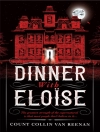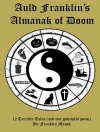Bram Stoker’s ‘The Burial of the Rats’ is a masterful novella that encapsulates his penchant for gothic horror while exploring themes of fear, the supernatural, and the grotesque. Set in the shadowy alleys of 19th-century Paris, the narrative follows an Englishman who becomes enmeshed in a macabre world dominated by a colony of sinister creatures. Stoker employs rich, atmospheric prose, weaving psychological depth and vivid imagery, inviting readers into an unsettling atmosphere akin to his more famous work, ‘Dracula.’ The novella reflects the broader literary movement of the time, particularly the turn towards the darker aspects of human nature and the uncanny. Bram Stoker, originally from Dublin, was heavily influenced by the folklore of his homeland and the gothic literature that permeated the Victorian era. His experiences in theater and his interactions with renowned literary figures provided him with a unique lens through which to craft tales of horror and the supernatural. Such influences are evident in ‘The Burial of the Rats, ‘ as Stoker melds personal and cultural elements, reinforcing the fears of urban existence and societal decay. Readers who are fascinated by the intersection of horror and existential dread will find ‘The Burial of the Rats’ a compelling exploration. Stoker’s narrative captivates with its chilling suspense and thought-provoking themes, making it a recommended read for anyone intrigued by the darker shades of literature. Delve into this chilling tale to experience Stoker’s acute understanding of fear and humanity’s innate drive for survival.
เกี่ยวกับผู้แต่ง
Bram Stoker, born Abraham Stoker on 8 November 1847 in Clontarf, Dublin, Ireland, is one of the pre-eminent figures in the establishment of the horror genre in literature. Stoker’s life was one intricately connected with the literary and theatrical world; he was a theatre critic for the ‘Dublin Evening Mail’, managed the Lyceum Theatre in London, and was a trusted friend of the famous actor Henry Irving. Stoker’s writing career spanned various forms – novels, short stories, and non-fiction – but his legacy is most strongly anchored to his vampire fiction, ‘Dracula’ (1897), a novel that has not only become synonymous with vampire literature but has also established the foundations for subsequent interpretations of vampire lore. While ‘Dracula’ stands as his magnum opus, Stoker’s repertoire of chilling tales includes ‘The Burial of the Rats’ (1914). This lesser-known work continues Stoker’s exploration of eerie atmospheres and sinister landscapes. Stoker’s literary style often melded gothic elements with psychological terror, a product of his masterful command of the macabre and the unknown. His tales frequently explored themes of fear, humanity’s battle with dark forces, and the complexities of Victorian social anxieties. Stoker passed away on 20 April 1912, leaving behind a legacy that not only survives but thrives in contemporary horror literature and media. His work has been the subject of countless adaptations and remains a cornerstone of gothic literature.












